Multi ARIA and Deadly Award winner, country-music legend Troy Cassar-Daley has thrown his support behind
a national program to vaccinate young Aboriginal and Torres Strait Islander people against preventable HPV-related cancers and disease.
Human Papillomavirus (HPV) is a common virus that affects young men and women. In women, it can cause genital warts, cervical cancer and other cancers, and in men it can cause genital cancers and warts. Vaccination against HPV can help protect young people from developing these cancers and disease later in life.
I have kids who are eligible for the vaccine and I want to do everything I can to protect them against HPV-related cancers. When you look at the rate of cervical cancer in women, and the studies about HPV-related cancers in men, which are preventable, I’ll be doing all I can to give my kids the best protection and that’s the vaccine,” Troy says.
“My little fella is 15 this year and I’ll be signing him up for it.”
Troy believes that modern medicine has its place alongside traditional Aboriginal and Torres Strait Islander healing, and that where modern medicine can be used to prevent disease, it should be taken up by communities.
“My grandmother had a saying that if you don’t have your health, you don’t have much at all. If we can prevent cancers and disease, we should take the medicine. We should use modern medicine as an advantage. We have a chance to make sure our kids are covered.”
Young Aboriginal and Torres Strait Islander men and women aged between 12 and 13 years of age can take part in a national, free school-based vaccination program to protect against HPV, and there will be a catch-up program for young men aged 14–15 years in 2013–2014.
Vaccinations will be rolled out through schools, and they will also be available through community-health clinics in some remote areas. If a child’s education is not school-based (online studies, for example), parents and guardians can contact their local health department for advice on where to get the free vaccine.
“Parents and guardians can check with their school when vaccinations are planned so they can be sure their child doesn’t miss out on the free vaccination,” Troy says.
For full protection against HPV-related cancers and disease, three doses of the HPV vaccine are required over a six-month period.
“It’s important that kids complete the full course,” Troy says.
“We’ve got to protect our young people against HPV with the vaccine before they become sexually active. You’ve got that window to protect them against these HPV-related cancers and disease.
“Every parent of kids who are eligible for the vaccine will be getting more information and a consent form sent home by the schools. This needs to be completed and returned to the school. While the HPV vaccine isn’t compulsory, it does offer the protection against these cancers and disease,” he says.
When asked why he has given his support to the HPV campaign, Troy cites the high rate of preventable disease in Aboriginal and Torres Strait Islander communities as his motivation.
“It’s our responsibility as Aboriginal and Torres Strait Islander people to consider the vaccines modern medicine can provide. Whooping cough, for example, is preventable and we have a high rate in our Aboriginal and Torres Strait Islander communities. It’s part of our responsibility as parents to consider vaccination against health problems we can prevent,” Troy says.
It’s important that parents make the time to find out all they can about the free school-based HPV vaccination program, and he urges people to keep an open mind.
“Parents and guardians will need to give their consent for their kids to have the vaccine. We have to understand the vaccine helps protect the future health of our kids and as a parent you want your kids to have that protection.
“I’m calling out to all Aboriginal and Torres Strait Islander parents and guardians to consider the HPV vaccination. As Aboriginal and Torres Strait Islanders, we have a big history with preventable diseases. Hopefully, parents will see the information from schools, or information at their local Aboriginal Medical Service, and seriously think about what can happen if they don’t vaccinate their kids.
“We’ve trusted our bush medicine because it’s been tried and tested over many years, and it’s the same with these vaccinations – they’ve been tried and tested, too.
“The biggest responsibility we have in life is as parents. I’m a musician, but I’m also a parent and for me that means getting my kids vaccinated.”
Vaccinations for young men will begin in schools across Australia in February 2013. There is already an ongoing HPV vaccination program for young women, and this is now being extended to young men.
“Parents should get as much information as they can about the HPV vaccination program. There is a website you can go to australia.gov.au/hpv Look for the link (at the bottom of the home page) to a page for Aboriginal and Torres Strait Islander people.”
“I’d urge you to get on the internet and look that page up, and there’ll also be information available through schools and community-health clinics. Or you can talk to your local doctor or community nurse.”
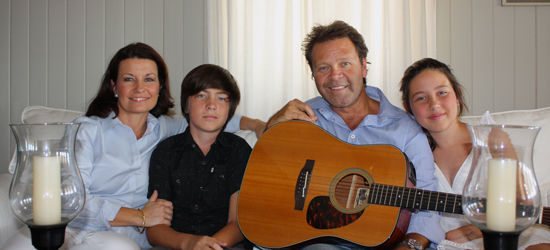
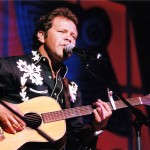
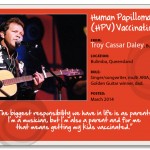
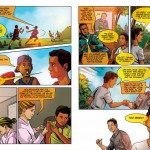
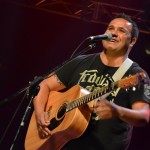
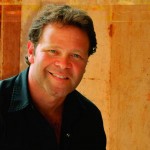
What can make warts quickly transmitted from a single individual to an additional will be the reality that it may well
start as an asymptomatic sickness. The report is an essential source of information
and analysis on the global Human papillomavirus market.
If the immune system of a person is very strong then the virus can be contained but the virus can never be removed.